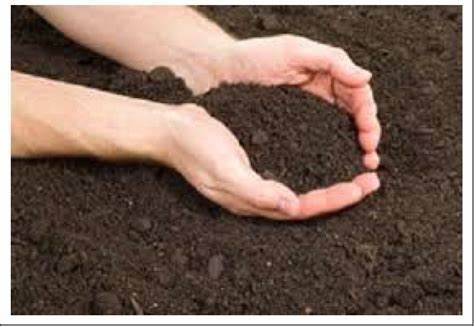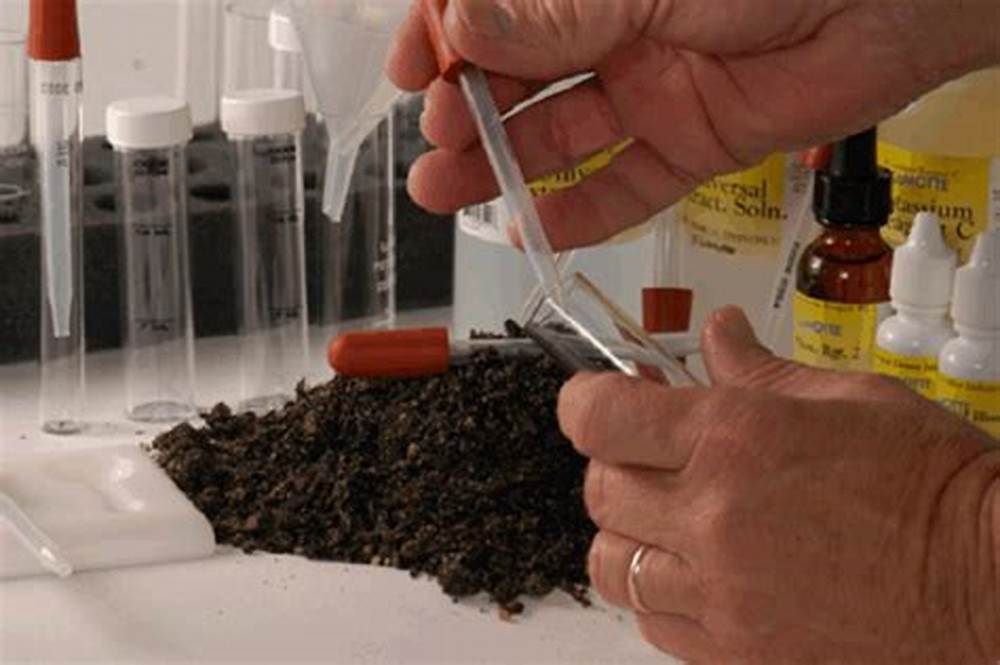Wheat is a staple crop that requires specific soil management and fertilization practices to achieve ...
Soil testing is a process that provides farmers with crucial information about the quality, nutrient content, and fertility of their soil. It is the foundation of scientific farming, enabling farmers to understand the health of their soil and make informed decisions about crop selection, fertilizer use, and irrigation practices. Healthy soil is the cornerstone of sustainable agriculture, and soil testing ensures that the land remains productive for years to come. By identifying deficiencies and imbalances, soil testing helps in optimizing inputs, reducing costs, and improving overall farm efficiency.
मृदा परीक्षण, यानी मिट्टी की जांच, एक ऐसी प्रक्रिया है जो किसानों को उनके खेत की मिट्टी की गुणवत्ता, पोषक तत्वों की मात्रा और उसकी उर्वरता के बारे में जानकारी प्रदान करती है। यह खेती को अधिक प्रभावी और लाभदायक बनाने का एक महत्वपूर्ण कदम है।
उपज बढ़ाने में मदद: मृदा परीक्षण से पता चलता है कि मिट्टी में कौन-कौन से पोषक तत्वों की कमी है। इससे किसान सही उर्वरकों और खादों का चयन कर सकते हैं, जिससे फसल की उपज बढ़ती है।
फसल के लिए उपयुक्त पोषण प्रबंधन: मिट्टी की जांच से यह समझने में मदद मिलती है कि कौन-सी फसल किस प्रकार की मिट्टी में बेहतर उत्पादन देगी।</p>
लागत कम करना: अनावश्यक उर्वरकों और रसायनों के उपयोग को रोककर उत्पादन लागत को कम किया जा सकता है।
मिट्टी की उर्वरता बनाए रखना: सही पोषण प्रबंधन से मिट्टी की
पर्यावरण संरक्षण: संतुलित उर्वरक उपयोग से मिट्टी और जल प्रदूषण को कम किया जा सकता है।

मिट्टी का नमूना लेना: खेत के अलग-अलग स्थानों से 6-8 इंच गहराई तक मिट्टी के नमूने लें। इन नमूनों को अच्छे से मिलाकर 500 ग्राम मिट्टी अलग करें। ध्यान दें कि मिट्टी गीली न हो और उसमें कंकड़-पत्थर न हों।
नमूना पैक करना: मिट्टी को एक साफ और सूखे प्लास्टिक बैग में रखें। बैग पर अपना नाम, खेत का नाम, गांव का नाम और खेत की फसल का विवरण लिखें।
नमूना भेजना: मृदा परीक्षण प्रयोगशाला (Soil Testing Lab) में नमूना जमा करें। सरकार द्वारा स्थापित कृषि विज्ञान केंद्र (KVK) या मृदा परीक्षण केंद्र का उपयोग करें।
रिपोर्ट प्राप्त करना: मृदा परीक्षण की रिपोर्ट में पोषक तत्वों (नाइट्रोजन, फॉस्फोरस, पोटाश आदि) और पीएच स्तर की जानकारी दी जाती है। इस रिपोर्ट के आधार पर उर्वरक और खाद का सही चयन करें।

मृदा स्वास्थ्य कार्ड योजना (Soil Health Card Scheme) किसानों को मृदा परीक्षण की रिपोर्ट प्रदान करती है। इससे किसानों को फसलों के लिए उपयुक्त पोषक तत्वों की जानकारी मिलती है। किसान निकटतम कृषि विज्ञान केंद्र से मृदा परीक्षण करवाने की सुविधा ले सकते हैं।
मृदा परीक्षण किसानों के लिए एक महत्वपूर्ण साधन है, जो न केवल फसल की पैदावार बढ़ाने में मदद करता है, बल्कि मिट्टी की सेहत को भी बनाए रखता है। नियमित मृदा परीक्षण करके किसान अपनी फसल का अधिकतम उत्पादन प्राप्त कर सकते हैं और खेती को लाभकारी बना सकते हैं।
"समृद्ध खेती के लिए मृदा परीक्षण अपनाएं और अपनी मिट्टी को स्वस्थ रखें।"
Helps Increase Yield: Soil testing identifies nutrient deficiencies in the soil, allowing farmers to choose the right fertilizers and manures, which ultimately improves crop yield.
Better Nutrient Management for Crops: It helps determine which crops are best suited for the soil, ensuring optimal growth and productivity.
Reduces Costs: By preventing unnecessary use of fertilizers and chemicals, soil testing helps reduce input costs.v
Maintains Soil Fertility: Proper nutrient management helps preserve the soil's quality and fertility over the long term.
Environmental Protection: Balanced fertilizer use minimizes soil and water pollution, promoting sustainable farming practices.
Collecting Soil Samples: Take samples from different locations in the field, digging 6-8 inches deep. Mix these samples thoroughly and set aside 500 grams of soil. Ensure the soil is dry and free from stones or debris.
Packaging the Sample: Place the soil in a clean, dry plastic bag. Label the bag with details like your name, field name, village name, and the crops grown in the field.
Submitting the Sample: Submit the sample to a soil testing laboratory. You can approach government-established Agriculture Science Centers (KVKs) or Soil Testing Centers.
Receiving the Report: The soil testing report will provide details about nutrient levels (nitrogen, phosphorus, potash, etc.) and the soil's pH level. Use this information to select appropriate fertilizers and manures.
Soil Health Card Scheme provides farmers with soil test reports, helping them understand the nutrient requirements for their crops. Farmers can utilize services at nearby Agriculture Science Centers for soil testing.
Soil testing is a crucial tool for farmers to maximize crop production and maintain soil health. Regular soil testing helps farmers achieve better yields, reduce costs, and practice sustainable farming.
"Adopt soil testing for prosperous farming and keep your soil healthy."
0
0
Wheat is a staple crop that requires specific soil management and fertilization practices to achieve ...
भारत में कृषि न केवल एक प्रमुख आर्थिक � ...
Neem cake is an organic byproduct derived from cold-pressed neem seeds after the extraction of neem ...
खरीफ फसलें-मानसून के मौसम में उगाई जात ...
Rice farming requires careful management of soil nutrients to ensure optimal growth and yield. The a ...
Fertilizers are essential substances used in agriculture to enhance the growth and productivity of c ...
Mango farming is a significant agricultural practice in many tropical and subtropical regions. Known ...
Organic farming is an agricultural practice that focuses on growing crops and raising livestock in a ...
Crop rotation, a key agricultural practice, involves growing different crops in the same field acros ...
Soil fertility is crucial for any farmer or gardening enthusiast. Fertile soil promotes healthy plan ...
The tradition of farming in India is centuries old, and wheat and barley hold significant importance ...
The Aak plant (Calotropis gigantea) is a remarkable creation of nature, valued for its distinctive f ...
Roses, known for their beauty and enchanting fragrance, are the pride of every garden. However, main ...
Agricultural Pollution refers to the harmful effects caused by agricultural activities on the enviro ...
Temperature fluctuations have a direct impact on wheat farming. It affects sowing, growth, grain for ...
During summer, rising temperatures increase the risk of fire in wheat crops. As April begins, wheat ...
Agroforestry is a term derived from two words: "Agriculture" and "Forestry." It is a land-use system ...
कृषि में आर्टिफिशियल इंटेलिजेंस (AI) क ...
Contour Farming is a very common farming technique practiced in India. It is commonly practiced in h ...
Vegetables to Sow in May : Dear farmer friends, in the month of May, our plants don't usually suff ...
Papaya is a highly nutritious fruit loaded with medicinal properties. Its consumption helps regula ...
India is an agrarian country with three major agricultural seasons and a variety of crops being prod ...
Leaf curl disease, which causes leaves to curl, is a serious threat to agriculture. This disease aff ...
Intercropping is a farming method where two or more crops are grown together in the same field. It h ...
Mulching is a layer spread over the surface of the soil, primarily aimed at retaining soil moistur ...
India is an agriculture-based country, yet many farmers can’t use their land as it remains barren ...